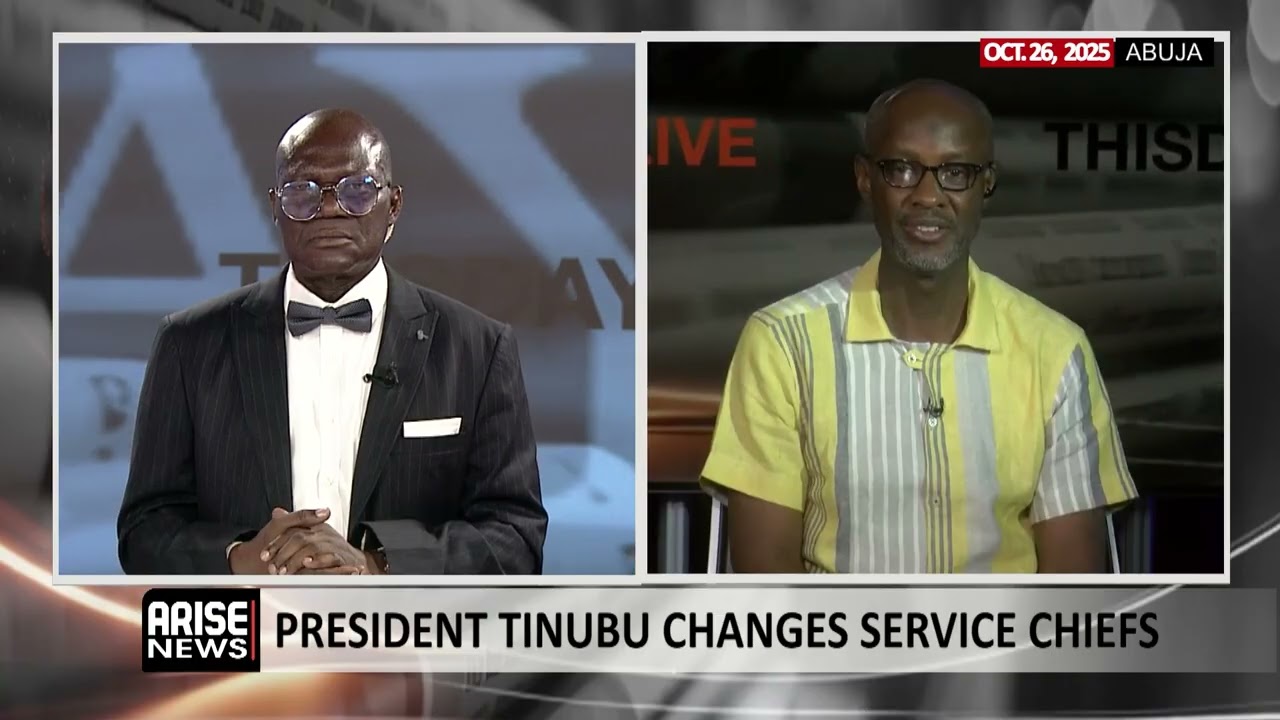
Director of the Abuja School of Social and Political Thought, Dr. Sam Amadi, has described the decision of the detained leader of the Indigenous People of Biafra (IPOB), Nnamdi Kanu, to defend himself in court without legal representation as “a political strategy rather than sound legal judgment.”
Speaking in an interview with ARISE News on Sunday, Dr. Amadi, a lawyer and former regulator, said Kanu’s decision, though unusual, is constitutionally permissible — but fraught with legal risks.
“It’s unusual to see anyone standing trial for such very serious charges — including treason and terrorism — choose to defend himself,” he said. “But the Constitution guarantees two rights: the right to counsel of your choice, and the right to defend yourself. The court cannot force you to take a lawyer.”
He explained that the Nigerian state provides for legal aid in cases where defendants cannot afford lawyers or lose representation, recalling his experience as a defence counsel during the Ken Saro-Wiwa trial under the Abacha regime.
“When we withdrew from defending Ken Saro-Wiwa for strategic reasons, the state immediately assigned him a lawyer,” he said. “In many cases, the court ensures the accused person is not left unrepresented — but in Kanu’s case, it appears to be a deliberate political strategy.”
Amadi argued that Kanu’s approach mirrors that of revolutionaries who use trials to “put the state itself on trial.”
“This is not just a criminal trial — it has political dimensions,” he explained. “IPOB is a political organisation, and its leader sees himself as a political prisoner. Like Nelson Mandela or Ken Saro-Wiwa, he may view this as a chance to challenge the legitimacy of the state and promote his movement’s cause.”
However, Amadi warned that such a strategy is “a dangerous gamble”, especially given the complexity of the charges and the calibre of the prosecution team led by senior lawyers.
“This is a highly technical case, and Mr. Kanu will be up against seasoned prosecutors. It’s risky because the judge must still apply the law and weigh evidence beyond reasonable doubt — whether he has a lawyer or not,” he said.
The legal scholar also outlined the responsibility of the court to ensure a fair trial, even when the defendant opts for self-representation.
“The judge has a constitutional duty to make sure the trial remains free and fair,” Amadi noted. “That means confirming that Kanu truly understands his choice and providing him with all facilities to prepare his defence — access to case files, books, and witnesses.”
He said this responsibility becomes even more critical because Kanu is detained by the Department of State Services (DSS), whose restrictive detention policies could obstruct his ability to prepare for trial.
“The DSS is not a correctional facility; it’s an intelligence agency,” Amadi said. “The judge may need to remand him in prison custody, where there’s a structured system for visits, legal consultation, and access to witnesses. Without that, his right to a fair defence would be compromised.”
Amadi added that the court must ensure equal procedural balance between prosecution and defence despite Kanu’s lack of legal training.
“The law doesn’t lower the standard of proof just because an accused person has no lawyer,” he said. “The state must still prove its case beyond reasonable doubt. The judge must also allow adequate time and resources for Kanu to prepare his defence — six days, as proposed, is impossible for a non-lawyer.”
He further explained that the court’s discretion would likely extend the timeline to ensure fairness and allow the defence to call witnesses.
“Kanu may seek to subpoena high-profile witnesses,” he said. “Some may cooperate voluntarily, others may have to be compelled by court order. But given the political nature of the case, many of them could be hostile — he’s probably aiming to extract certain statements or expose contradictions for political impact.”
Amadi said many revolutionaries in history — from Mandela to Saro-Wiwa — viewed their trials as opportunities to advance their cause rather than to seek acquittal.
“For some agitators, the courtroom becomes a stage to advance their ideology. They are willing to go to prison or even die for it,” he said. “If Kanu believes his lawyers can’t say what he wants said, then he’s crossed from legal reasoning into political conviction.”
He concluded by stressing that while Kanu’s move may strengthen his symbolic stance among followers, it poses significant legal dangers and could further complicate an already delicate case.
“It’s a bold, even defiant move — but a dangerous one,” Amadi warned. “The real test now lies with the court, to ensure fairness and avoid a repeat of past political trials that brought Nigeria global condemnation.”
Boluwatife Enome

